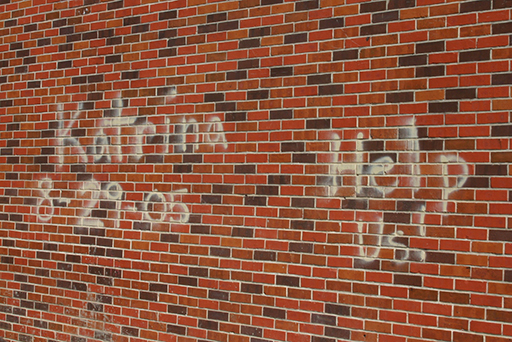2 What sort of a disaster was Hurricane Katrina?
This section uses the example of Hurricane Katrina to illustrate and develop your understanding of the social harm approach.
As has been suggested, not all social problems (such as ‘natural disasters’) are easily captured by the idea of ‘crime’, but we might still have a responsibility to question ‘natural disasters’ and their impacts, and where they should fit in with how researchers examine crime and harm. It might be tempting to think of such ‘natural’ events as no business of criminology, for example to suggest that, although shocking and socially harmful, they are ‘unavoidable’. Zemiologists, however, may examine the context surrounding a ‘natural disaster’, the underlying reasons why harm results from such ‘natural’ events, and how this links to inequalities between social groups. This may result in a finding that the disaster was not random, and was actually avoidable, with some arguing that ‘[t]here is no such thing as a natural disaster’ (Hartman and Squires, 2006a).
Hurricane Katrina, one of the strongest and most deadly hurricanes in U.S. history, made international news headlines initially because of the damage it caused. However, questions were also raised over the adequacy of government preparation and responses to it. The hurricane first made landfall in the U.S. state of Florida on 25 August 2005 and intensified as it moved over the Gulf of Mexico, particularly affecting the states of Louisiana, Mississippi and Alabama. It has been described as not only ‘the costliest’ hurricane ever recorded in the U.S., but also its ‘deadliest’ since 1928, with a government estimated death toll of 1,833, and estimated financial costs of $151 billion (United States Census Bureau, 2015). Reportedly 711,698 people were acutely affected by flooding and/or structural damage (Crowley, 2006, p. 123).
Activity 3 Reflecting on Hurricane Katrina through a social harm perspective
Watch this media clip of a speech from President Barack Obama in New Orleans on the tenth anniversary of Hurricane Katrina. Then, thinking about the clip, answer the following question and briefly reflect on why you chose your answer:
Obama: Hurricane Katrina ‘became a man-made disaster’ [Tip: hold Ctrl and click a link to open it in a new tab. (Hide tip)]
Do you think Hurricane Katrina was:
- A crime
- A harm
- Both a crime and a harm
- Neither a harm nor a crime.

